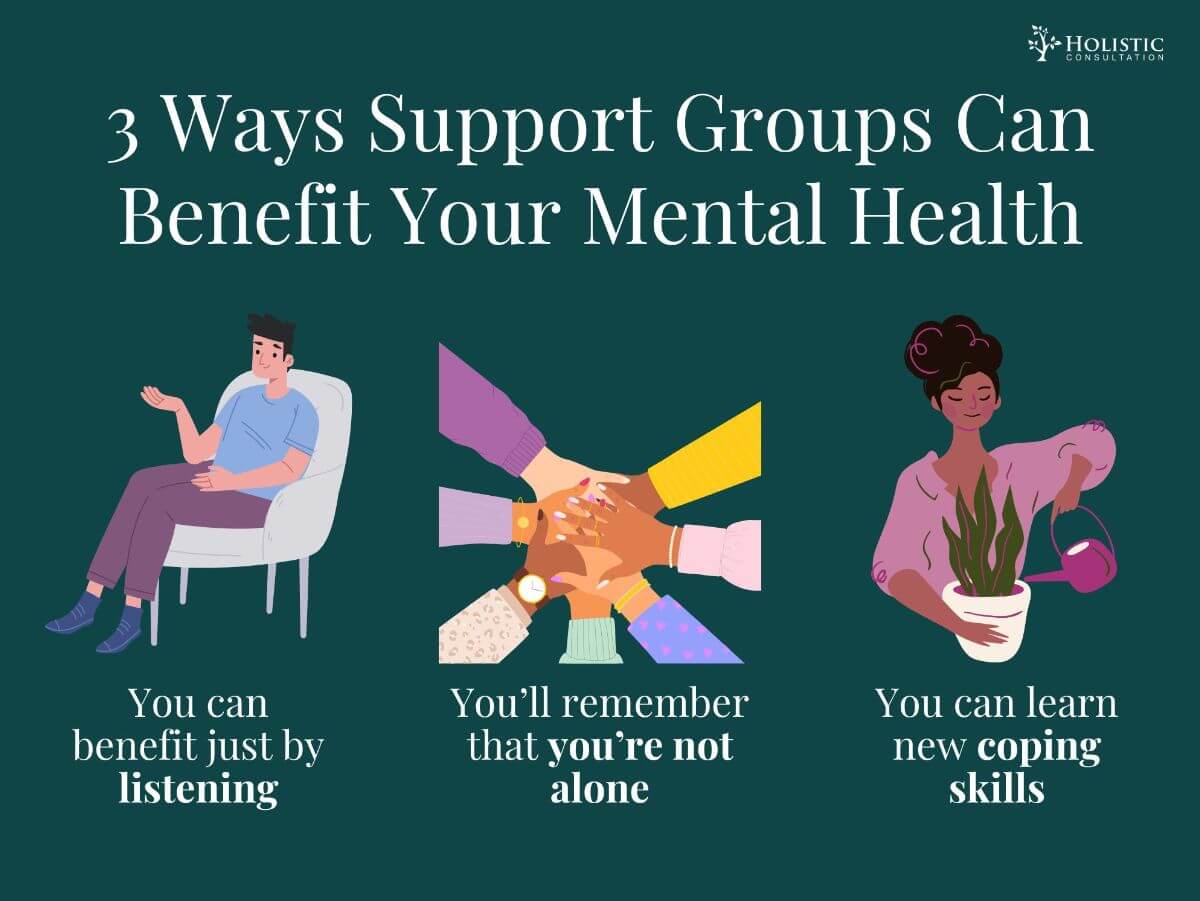The Of Mental Health Counseling
The Of Mental Health Counseling
Blog Article
Things about Mental Health Counseling
Table of ContentsLittle Known Facts About Mental Health Counseling.Getting The Mental Health Counseling To WorkThings about Mental Health CounselingThe Buzz on Mental Health CounselingHow Mental Health Counseling can Save You Time, Stress, and Money.
With treatment, you can gain insight right into your own patterns of habits and communication, which can result in even more fulfilling and pleasing relationships with buddies, household, and romantic partners. What we assume, we materialize. If you're taken in with unfavorable emotions and negative thoughts that are disrupting your life, treatment can assist., or there are various other unfavorable ways you act. Therapy can help you change those behaviors that are having an adverse effect on your world and partnerships.

Getting treatment to resolve specific facets of your life can help you be extra efficient in other locations, consisting of job.

All About Mental Health Counseling
You can see a therapist when points are going actually well in your life, or when you're concerning to go through a big life transition." Talkspace therapist Kate Rosenblatt, MA, LPC, LMHC. However there are a lot more benefits of therapy than just the ones we have talked about. Treatment can educate you just how to manage separation, handle sorrow, or construct partnerships (enchanting or those with friend or family) in a healthy method.
For the objective of today research study, viewed benefits and barriers to psychological wellness help-seeking are being checked out. Previous research study found that perceived obstacles have a substantial impact on university student' wellness habits options (Von Ah, Ebert, Ngamvitroj, Park & Kang, 2003). Perceived advantages and barriers to help-seeking were specifically picked because of their influence on decision-making and inevitably activity (Glanz, Rimer, & Su, 2005).
The present research seeks to examine whether or not stigma offers as a barrier to therapy amongst college trainees. Amongst these were: (1) preferring to deal with psychological health issues themselves, (2) not having sufficient time to get involved in treatment, (3) concerns concerning whether mental health and wellness therapy is efficient in remediating troubles, (4) a belief that stress and anxiety is normal or the issue will certainly obtain much better without therapy, (5) absence of cash, and (6) worry regarding what others would certainly think if they located out concerning treatment participation.
(2006) reported comparable variables as obstacles to seeking treatment and additionally found that a Mental Health Counseling mistrust of carriers might hamper trainees from seeking assistance. Staff in campus mental health centers may be perceived as unfriendly, and long wait times for solutions might be "off-putting" for pupils. Elements facilitating extra positive attitudes are commonly at the opposite pole of those factors identified as useful source obstacles.
Mental Health Counseling Fundamentals Explained
One in three (34.6%) reported surviving school and one in four (23.3%) reported living with moms and dads. Almost half of pupils were associated with campus companies and 1 in 10 reported being in a society or sorority. Greater than one-third of pupils (38.1%) reported that they had a relative or pal with a diagnosed psychological health condition.

Get This Report on Mental Health Counseling
Univariate F-tests recognized details subscale items that substantially differed. Females were much less most likely than males to view individuals who go to counseling as mentally weak, individuals that most likely to therapy as insane, to really feel that people with psychological illness must manage issues on their own, that individuals who most likely to therapy as unable to resolve issues, that individuals that most likely to counseling are lazy, and to feel that people that go to counseling are various from regular people in a negative way.
Study results disclosed that women were dramatically less most likely than males to hold stigma-related perspectives. This is consistent with previous study which also located that males hold higher degrees of perceived preconception than ladies (Chandra & Minkovitz, 2006). Based on research findings, it appears that men may be much less likely than women to look for treatment because of reduced perceived obstacles along with high stigma-related attitudes.
Some Known Incorrect Statements About Mental Health Counseling
In enhancement, university health experts might supply curricula targeting males with information on the benefits of mental health and wellness therapy and the relevance of seeking assistance when required. All strategies should be assessed with future research to determine the impact on university student, especially this article males. In contrast to basic populace studies which reveal that females are most likely to look for mental wellness solutions contrasted to guys (Haunstein et al., 2006; Mackenzie, Gekoski, & Knox, 2006), the existing research located no significant differences in the number of viewed barriers to help-seeking behaviors based on sex.
Researchers hypothesize that this is mostly because of standard social standards and sex roles that defined males based on toughness and lack of psychological expression (Addis & Mahalik, 2003; Ang, Lim, Tan, & Yau, 2004; Mojtabai, 2007). Generally, there have been combined results amongst the university student populace pertaining to sex distinctions (Rosenthal & Wilson, 2008). This finding was unanticipated and might highlight that those who had actually gotten counseling had a better idea of delay times and other "access" obstacles that may make it difficult to begin treatment. Probably, participants who have obtained counseling view more obstacles than participants who have not obtained therapy considering that seeking therapy services once more could entail fear of self-disclosing individual details to a new counselor.
Report this page